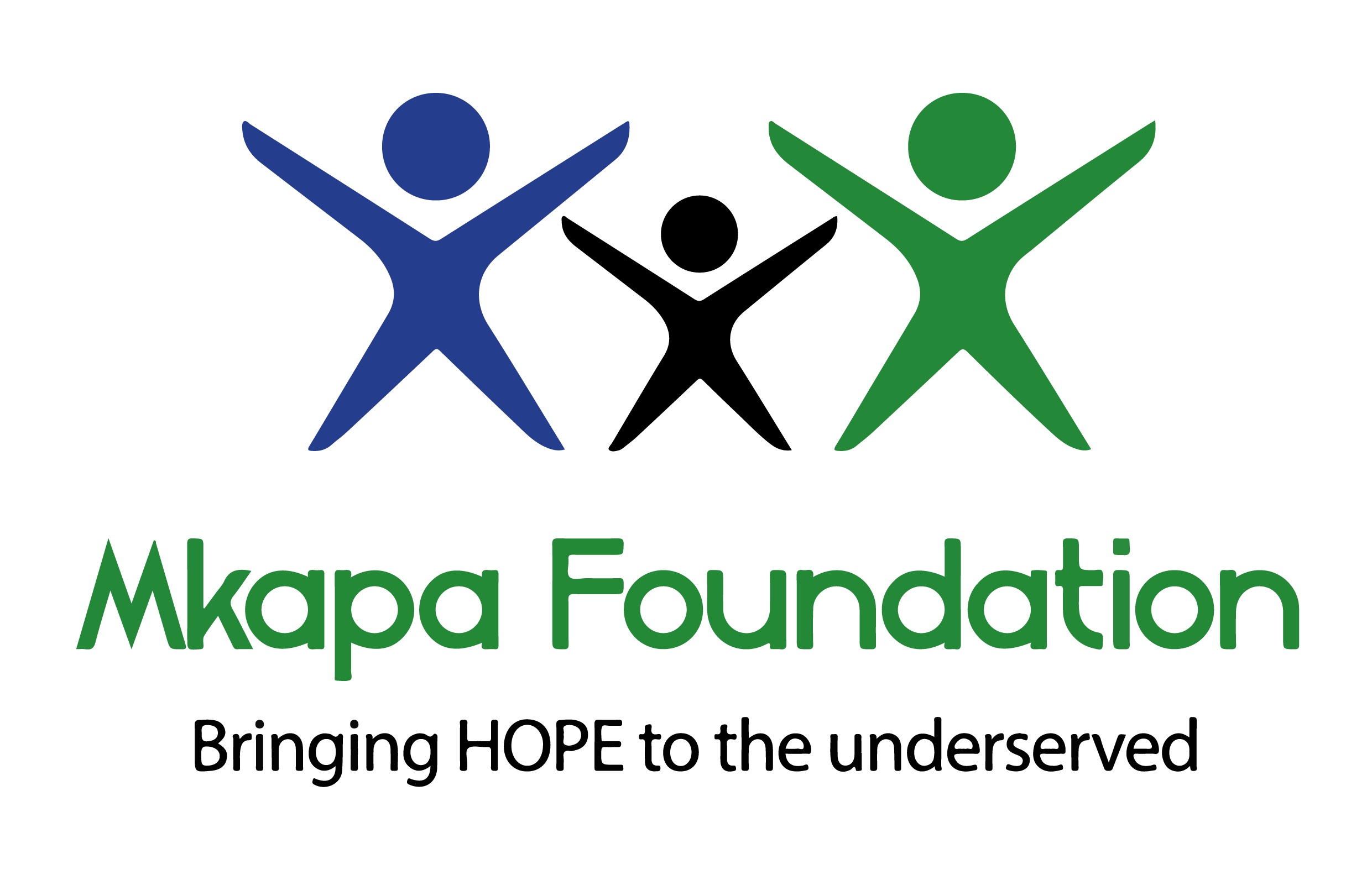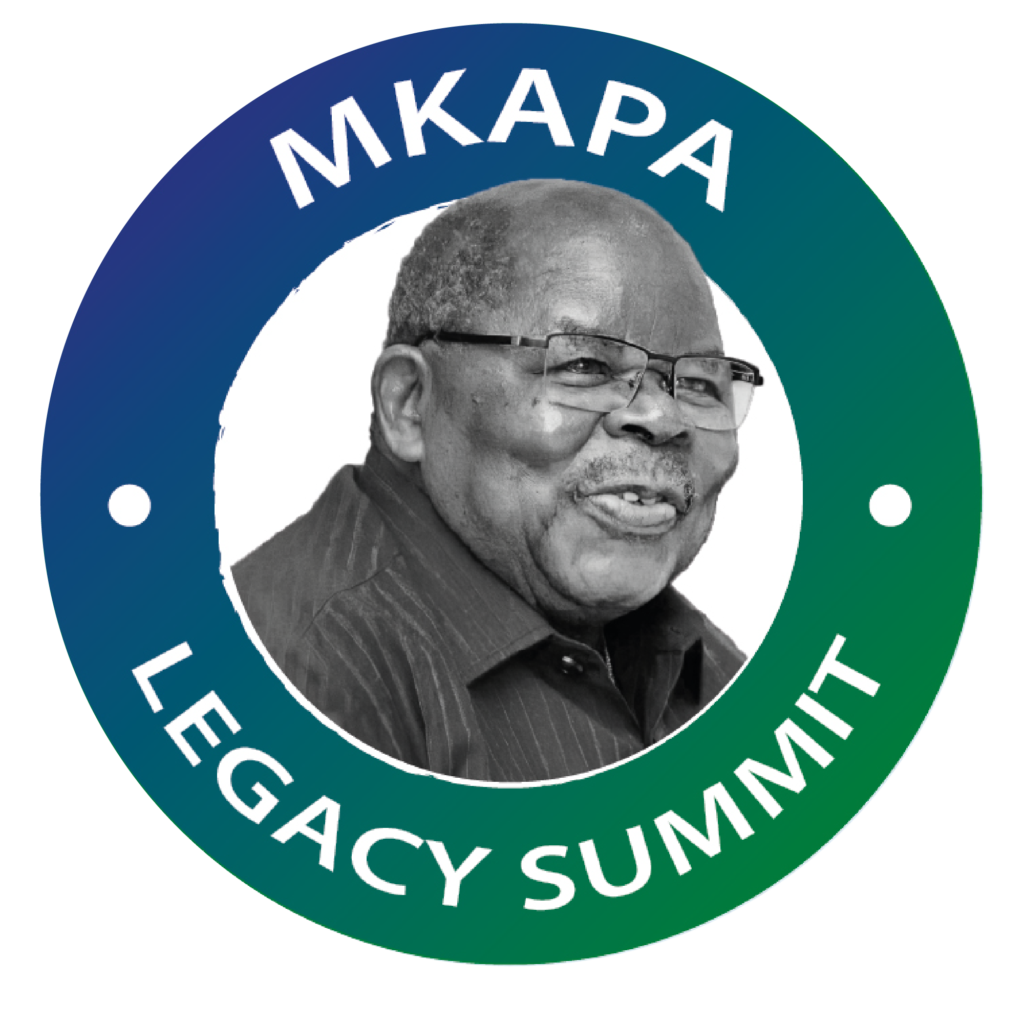Resilient Sustainable System for Health (RSSH)
The Resilient Sustainable System for Health (RSSH) initiative, supported by the Global Fund (GF), is entering its seventh cycle with a three-year investment spanning from 2024 to 2026. This follows the successful implementation of the RSSH 2021-2023 program. In this new phase, the Benjamin William Mkapa Foundation has been designated as a key partner, entrusted with supporting the implementation of the Human Resource for Health and Community Health Care Workers module. This role will be carried out as a sub-recipient to the Ministry of Health.
Through the current Global Fund Cycle Seven (GC7), the Benjamin Mkapa Foundation will play a crucial role in maintaining of 595 skilled staff and enhancing the utilization of 2,600 Community Health Care Workers (CHWs) over a 24-month period. This support will include the development and implementation of an incentive and remuneration guide for Community Health Care Workers, ensuring effective engagement with key ministerial officials. Additionally, BMF scope has been widen up to include engagement of 1500 Community Health Workers who will be formally trained under six months curriculum as per national Guidelines. The additional scope is under Global Fund support via Covid 19 Response Management fund (C19RM)
Activity location: The GC7 initiative will be implemented across 18 prioritized regions: Dar es Salaam, Morogoro, Lindi, Mtwara, Dodoma, Singida, Tanga, Kilimanjaro, Arusha, Manyara, Mwanza, Simiyu, Mara, Shinyanga, Tabora, Iringa, Mbeya, and Ruvuma ensuring that, the benefits of this initiative reach a broad network of communities and local health systems
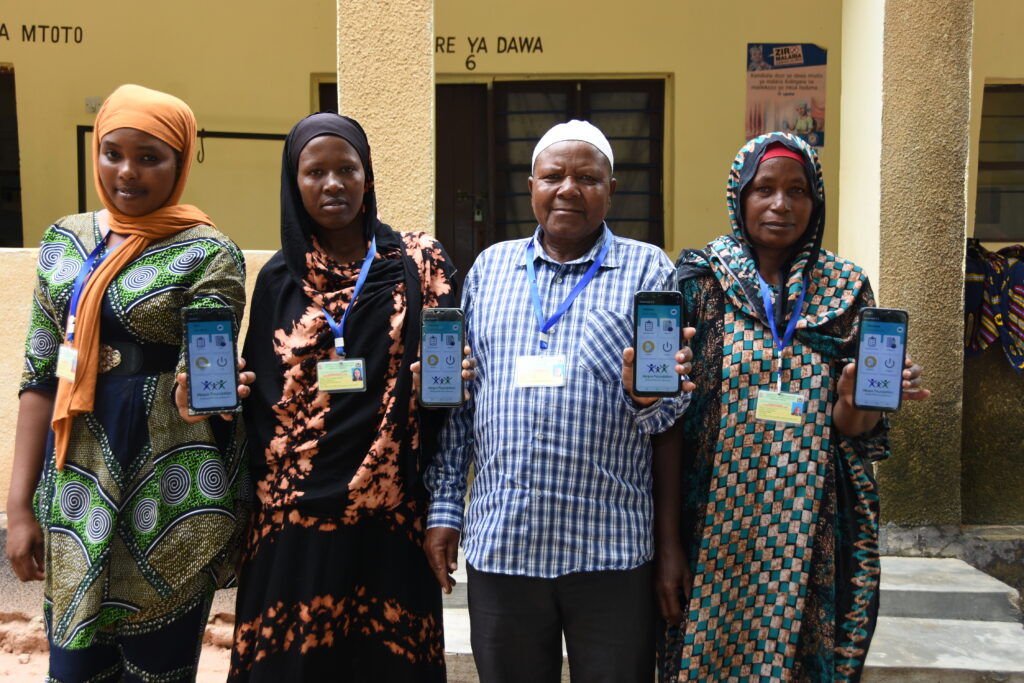
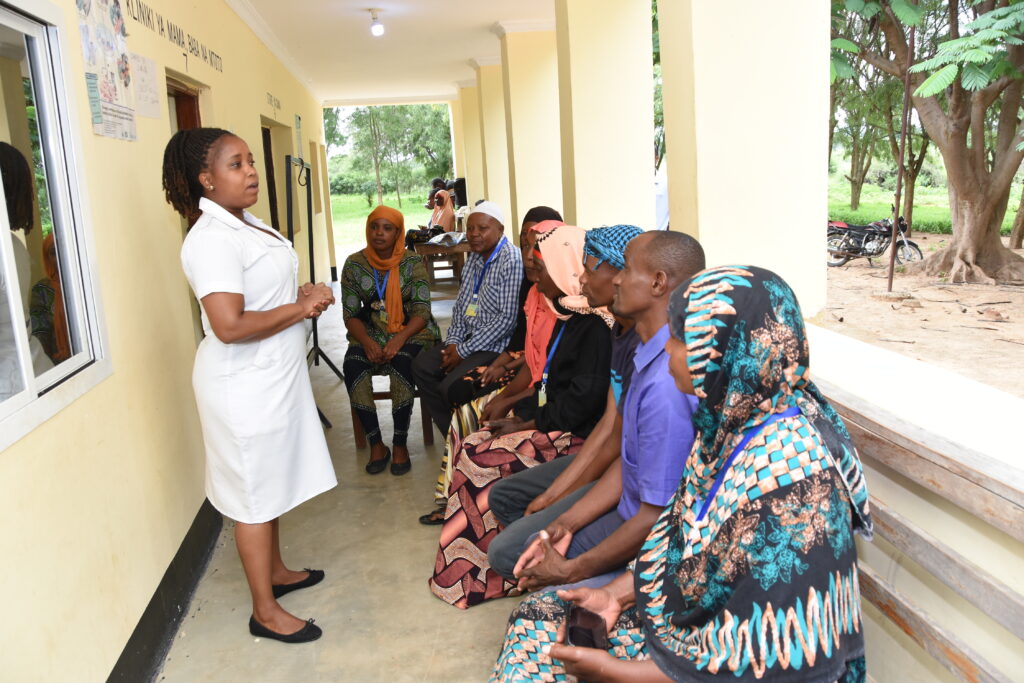
Grant Activities
- Enhance engagement of 4100 Community Health Workers as per accelerated CHW plan.
- Enhance availability of service delivery to beneficiaries Regions and LGAs via effective placement of skilled staff.
- Support partners engagement towards development of the standardized registration and certification system for Community Health Workers.
- Support development of Community Health Workers financing (remuneration, allowances and working tools) guide in consultation with Government via Ministry of Health and PORALG.
Performance on the previous Resilient Sustainable System for Health (2021-2023)
Enrollment performance
RSSH project that ended December 2023 cumulatively succeeded in recruiting 1112 skilled staff. The engaged staff supported the provision of HTM services in 357 health facilities across 75 Local Government Authorities from seventeen (17) Regions. Engaged staff were oriented on their key roles and responsibilities, as well as the professional code of ethics and conduct and received comprehensive training on the Human Resource Management Information System (HRMIS).
Mainstreaming performance
During the implementation period, 59% of the engaged staff equivalent to 651 health care workers were successfully mainstreamed into the Government System by August 2023. All mainstreamed staff were replaced by new ones thus made a program to surpass by far the set target of 595 staff.
Service delivery performance
The dedicated efforts of the skilled staff led to significant improvement in the uptake of HIV and TB care services. By June 2023, a total of 4,553 individuals were newly enrolled in HIV care, with 4,530 (99.5%) successfully initiated on ART. Among 2,138 notified TB cases, 447 began TB treatment. A cumulative total of 36,964 individuals were newly enrolled in HIV care, with 35,706 (97%) initiated on ART by December 2023. Additionally, healthcare workers played a crucial role in screening, identifying, notifying, and initiating TB treatment, with a total of 15,392 TB cases notified and 8,871 clients started on TB treatment.
Annual cumulative performances of engaged staff on TB/HIV services
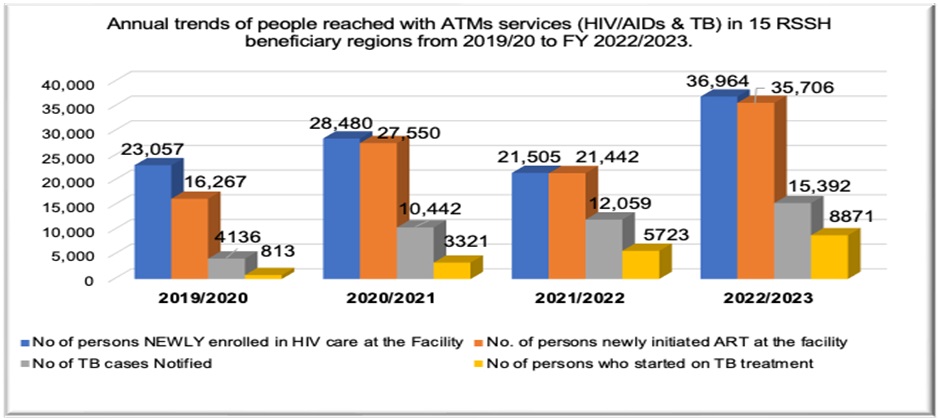
Annual cumulative performances of engaged staff on Malaria services
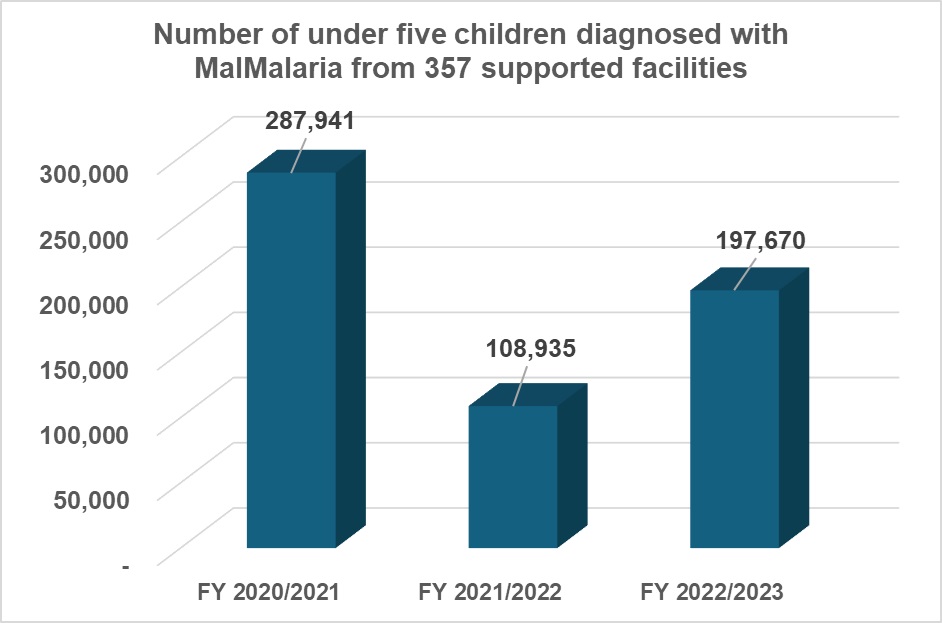
Engaged Community Health Workers
The 2021 – 2023 RSSH supported engagement placement of 300 CHWs in Katavi Region. Three councils namely, Mpanda MC (78), Mpimbwe DC (137) and Mlele DC (85) benefited from the support.
Service performance of the engaged Community Health Workers
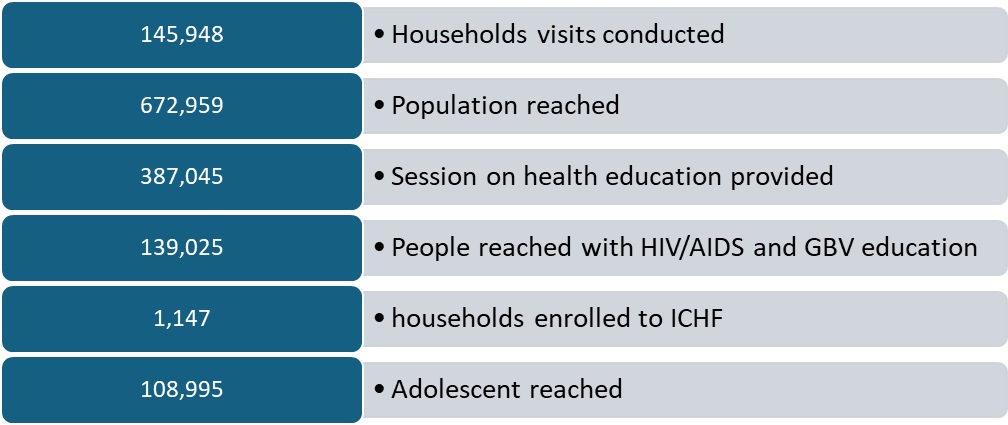
Number of referrals provided by engaged CHWs

